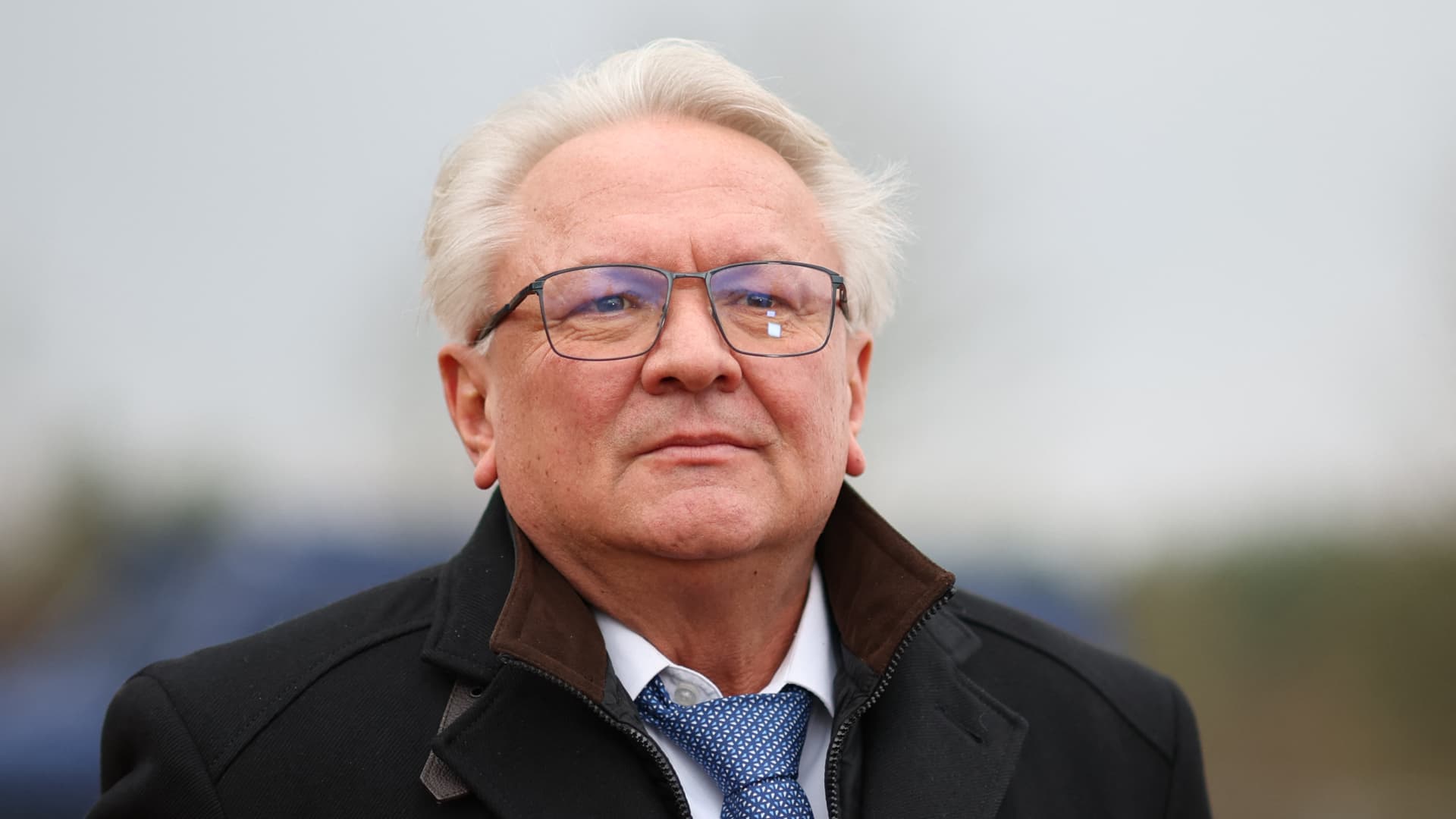Russia planned to assassinate the CEO of a major German arms manufacturer that provides artillery ammunition and armored vehicles to Ukraine, but the plot was uncovered and disrupted by U.S. and German authorities, according to a U.S. official and a source with knowledge of the matter.
The alleged plot targeted Armin Papperger, the chief executive of Rheinmetall AG, Europe’s largest producer of ammunition, whose company makes 155 mm artillery rounds for Ukraine and plans to open several plants inside the country to produce both ammunition and armored vehicles, including the Lynx infantry fighting vehicle. U.S. intelligence agencies discovered the plan to go after Papperger earlier this year and informed the German government, the sources said.
CNN first reported on the assassination plot.
Papperger was one of a number of defense industry chiefs in Europe to be targeted but the plot against him was believed to be more advanced, the sources said.
The revelations followed recent warnings from NATO’s secretary-general, European governments and U.S. officials about an expanding effort by Moscow to disrupt arms deliveries to Ukraine as it tries to defend itself against invading Russian troops.
The White House National Security Council would not comment directly on the specific case involving Rheinmetall, but council spokesperson Adrienne Watson said the Biden administration was concerned about the growing threat of Russian sabotage.
“While I don’t have a comment on this specific report, Russia’s intensifying campaign of subversion is something that we are taking extremely seriously and have been intently focused on over the past few months,” Watson said. “The United States has been discussing this issue with our NATO Allies, and we are actively working together to expose and disrupt these activities. We have also been clear that Russia’s actions will not deter Allies from continuing to support Ukraine.”
The Office of the Director of National Intelligence, the CIA and the German embassy in Washington all declined to comment.
More from NBC News:
A Rheinmetall spokesman, Oliver Hoffman, said the company generally does not comment on security matters but said “the necessary measures are always taken in regular consultation with the security authorities.”
A spokesperson for the Democratic minority on the House Intelligence Committee declined to comment on the alleged plot but said: “As Putin continues to fail to accomplish his maximalist agenda in Ukraine, Russia has increasingly turned to illegal and aggressive malign activities abroad, including in NATO countries. The Intelligence Committee is closely following these threats, which only strengthen our resolve to support Ukraine.”
Russia’s embassy in Washington did not immediately respond to a request for comment.
Last month, NATO Secretary-General Jens Stoltenberg said alliance members planned to impose more restrictions on Russian intelligence agents and to bolster security for key infrastructure to counter Moscow’s use of sabotage, cyberattacks and disinformation to undercut Western support for Ukraine following Russia’s full-scale invasion in February 2022.
“We have seen several examples of sabotage, of arson attempts, of cyberattacks, of disinformation,” Stoltenberg told reporters.
NBC News has previously reported that Russia is conducting a sabotage campaign across Europe in an increasingly aggressive effort by President Vladimir Putin to undermine Western support for Ukraine, seeking to damage railways, military bases and other sites used to supply arms to Kyiv.
The attempted sabotage includes an alleged Russian-backed arson attack on a Ukrainian-linked warehouse in the United Kingdom, a plot to bomb or set fire to military bases in Germany, attempts to hack and disrupt Europe’s railway signal network and the jamming of GPS systems for civil aviation.
A report in February from the Royal United Services Institute, a London-based security think tank, warned that Russia’s intelligence service, the GRU, was building a clandestine network of operatives to conduct espionage and potential sabotage operations in Europe.
Rheinmetall’s Papperger had announced last month that his company planned to enable the production of Lynx infantry fighting vehicles inside Ukraine “in the near future.” And in February, the company signed a memorandum with Ukraine to set up a joint production plant for artillery ammunition. The plant will produce “a six-digit number” of 155 mm caliber artillery rounds in the near future, the company said.
Rheinmetall’s collaboration with Ukraine is part of a wider effort by European governments to help Kyiv build up its own defense industry and reduce its reliance on Western assistance.














